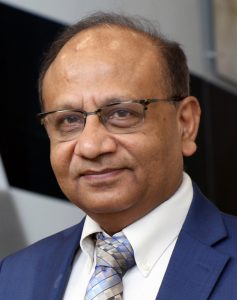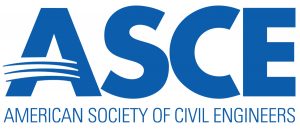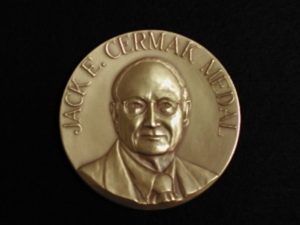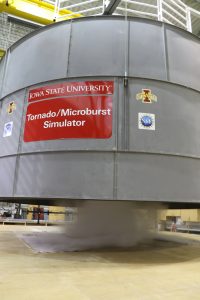Partha Sarkar named recipient of Jack E. Cermak Medal
Author: John Burnett-Larkins
Author: John Burnett-Larkins

The Jack E. Cermak Medal, one of the most prestigious honors in the field of wind engineering, has been awarded to Department of Aerospace Engineering Professor Partha P. Sarkar.
Presented by the American Society of Civil Engineers (ASCE) and originally established by its institutes, the Engineering Mechanics Institute (EMI) and Structural Engineering Institute (SEI), the medal is awarded for outstanding and cumulative contributions to research and/or practice in wind engineering.
During the year following receipt of the medal, the recipient is invited to deliver the Jack E. Cermak Lecture on a topic within the designated subject area of the award, to be presented at one of the ASCE national meetings.
 The award recognizes Dr. Jack E. Cermak’s lifetime achievements in the field of wind engineering and industrial aerodynamics. Cermak, who spent an illustrious career as an educator at Colorado State University, is widely recognized as the “father of wind engineering”. This award is funded by friends and colleagues of Cermak and was initiated in 2000. On receiving the news of the award, Sarkar said “I am truly honored to be awarded the Cermak medal and join the list of past awardees whom I have long admired in my field. I was privileged to know Prof. Cermak with whom I interacted professionally several times during my initial years in academia, so receiving this award has a personal value to me.”
The award recognizes Dr. Jack E. Cermak’s lifetime achievements in the field of wind engineering and industrial aerodynamics. Cermak, who spent an illustrious career as an educator at Colorado State University, is widely recognized as the “father of wind engineering”. This award is funded by friends and colleagues of Cermak and was initiated in 2000. On receiving the news of the award, Sarkar said “I am truly honored to be awarded the Cermak medal and join the list of past awardees whom I have long admired in my field. I was privileged to know Prof. Cermak with whom I interacted professionally several times during my initial years in academia, so receiving this award has a personal value to me.”

Sarkar is widely acclaimed for his contributions as an educator and researcher and is nationally and internationally known for his research in structural wind engineering. He possesses a long track record of accomplishments in the broad area of resilient infrastructure to improve the resilience of man-made infrastructure in the areas of civil, aerospace, agriculture, energy (wind and solar), and transportation to wind hazards.
Among Sarkar’s notable research contributions, he has significantly advanced the understanding of near-ground flow field and extreme wind loads on civil structures and their response, particularly in non-synoptic windstorms (tornadoes, microbursts and gust fronts), and has developed aeroelastic load models in time domain and wind-tunnel based experimental techniques for assessing flutter, buffeting and vortex-induced loads and response of flexible- civil and aero structures (airplane wings, cables, high-masts, long-span bridges, signal-light structures, tall buildings, wind turbine blades, etc.). He has advanced the understanding of the mechanisms of wind flow around civil structures and their loading effects, particularly low-rise buildings. He has contributed to the development of vibration and load mitigation techniques using aerodynamic-based devices for civil structures such as building roofs, signal-light structures, solar panels, stay cables in cable-stayed bridges, and tall buildings.

He has pioneered and developed unique wind tunnel facilities and innovative experimental techniques for research, education, and industrial work. Amongst these facilities, he designed and facilitated the construction of the world’s first translating tornado/microburst simulator for civil engineering application, and the first aerodynamic-atmospheric boundary-layer wind tunnel with gust generation capability. Sarkar’s tornado simulator is considered to be the “gold standard” in the field of wind engineering research which has helped in the assessment of tornado-induced wind loads on civil structures, and thereby contributed to the development of new provisions for design loads for tornado-hazards in the latest ASCE7 standard. These facilities are part of the department’s Wind Simulation and Testing (WiST) Laboratory, developed to address various wind hazard needs.